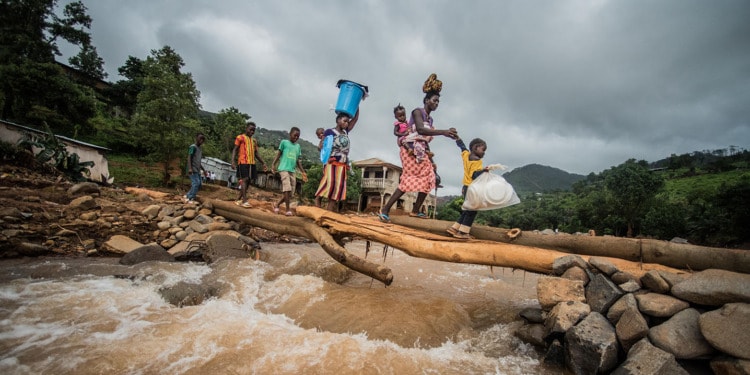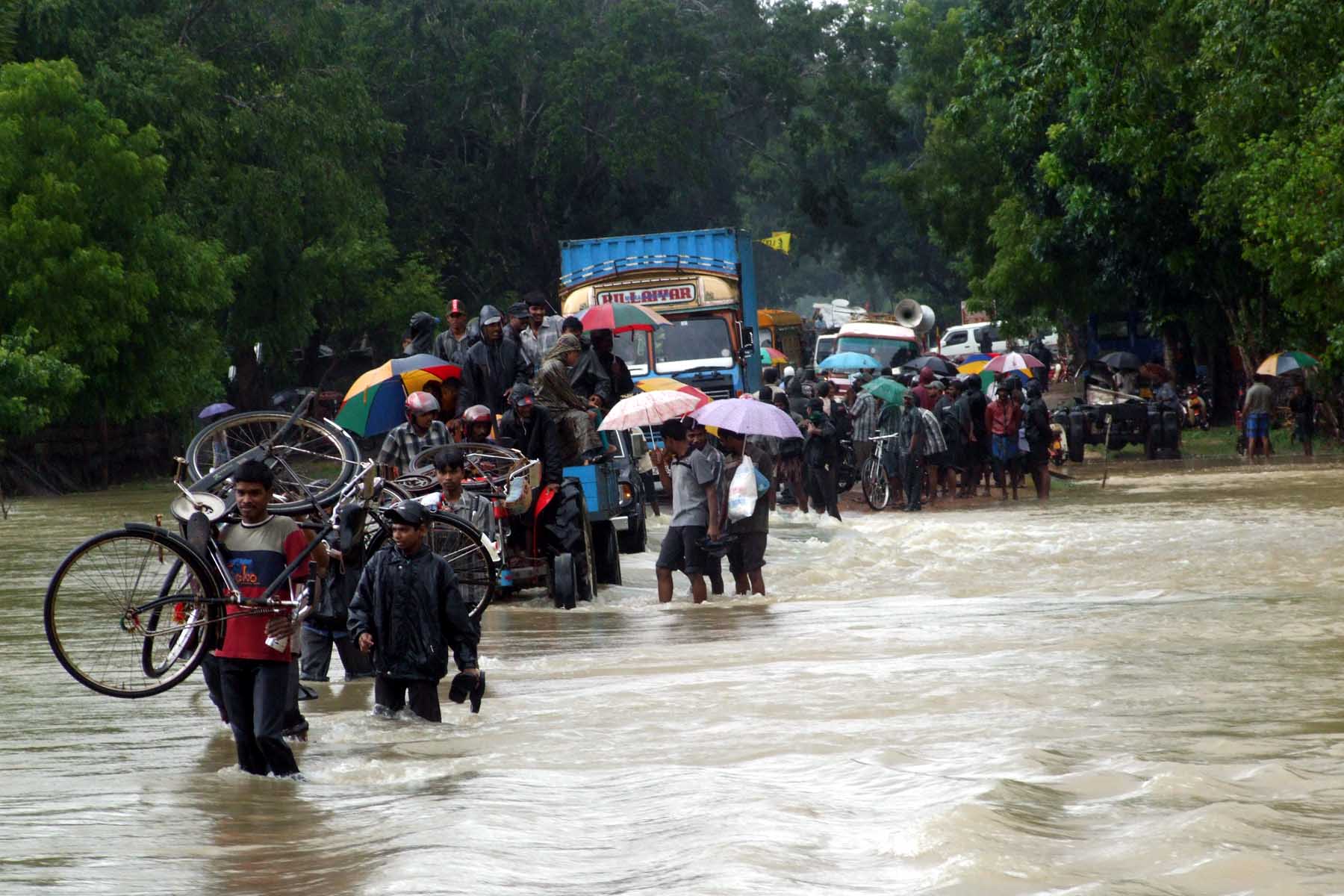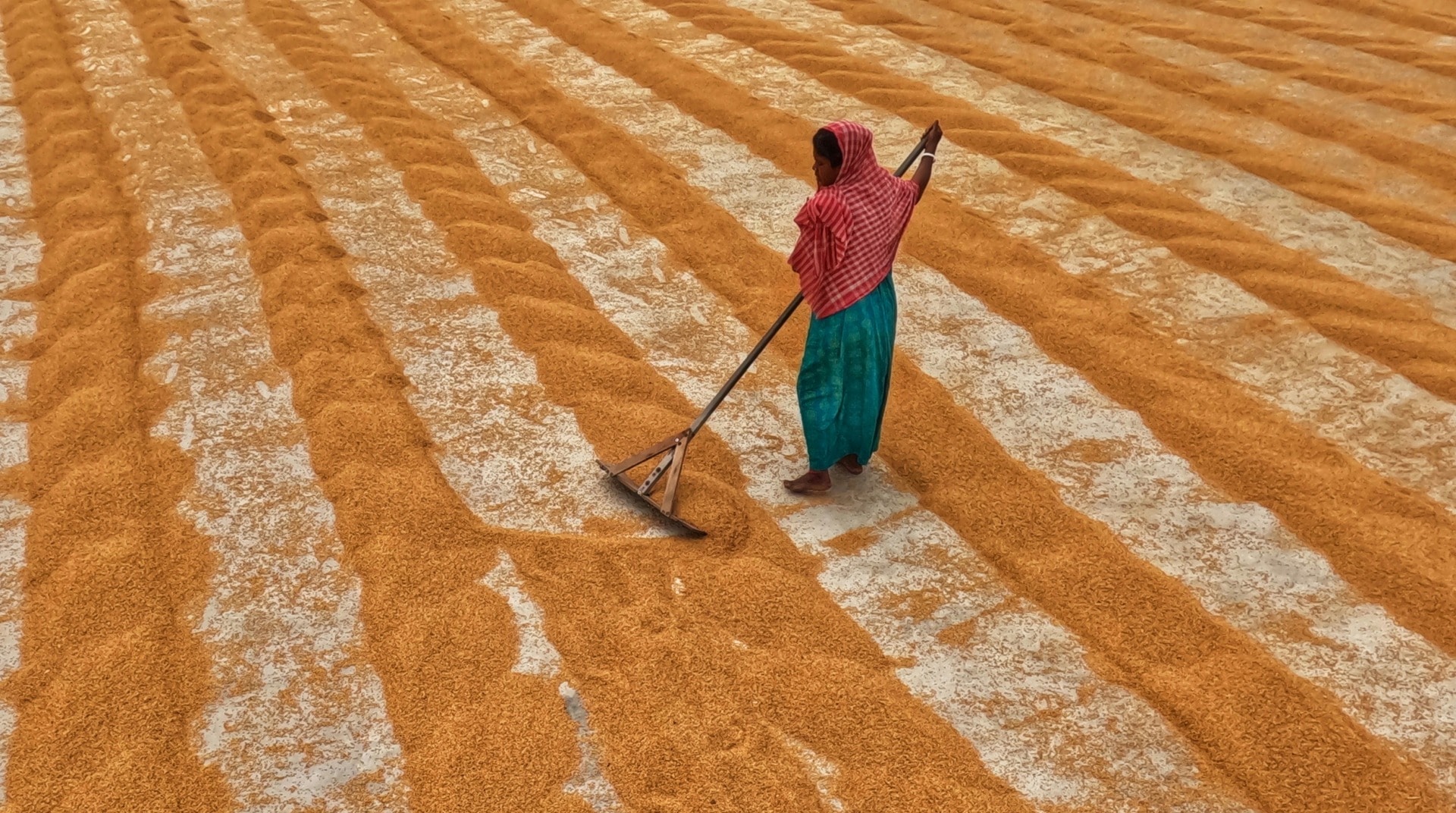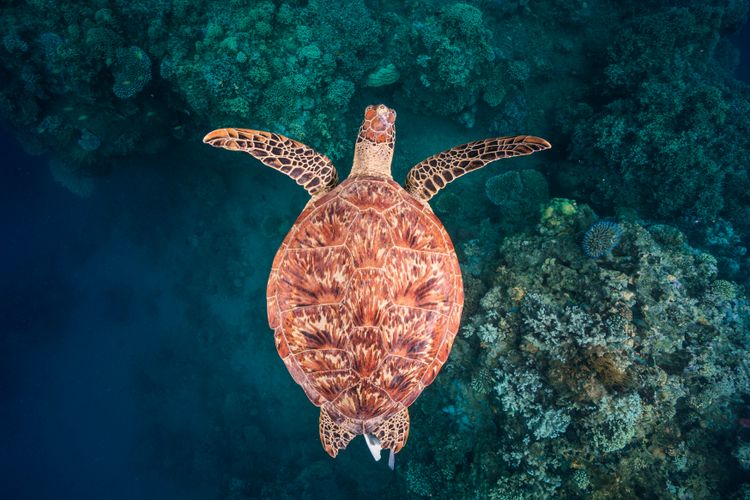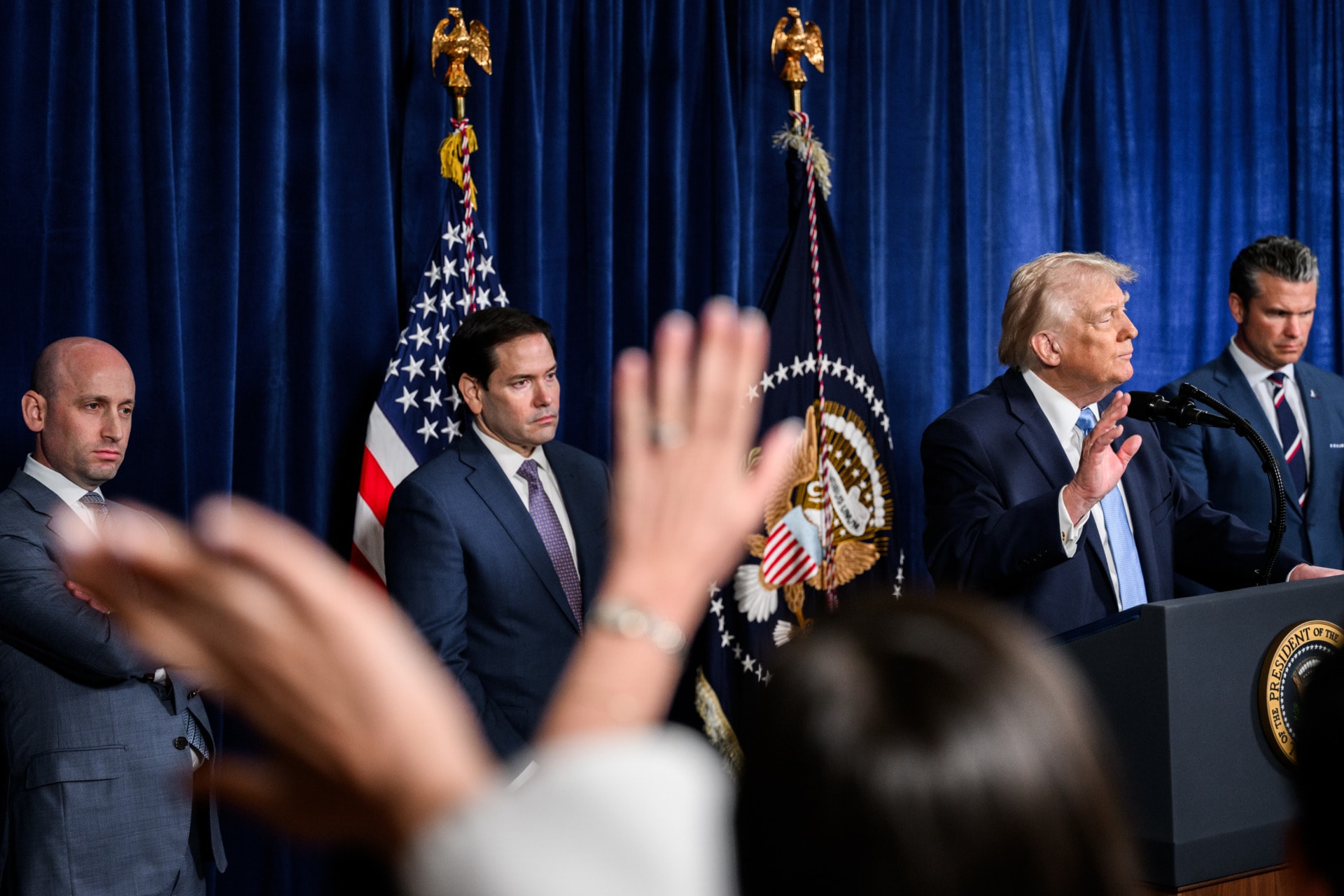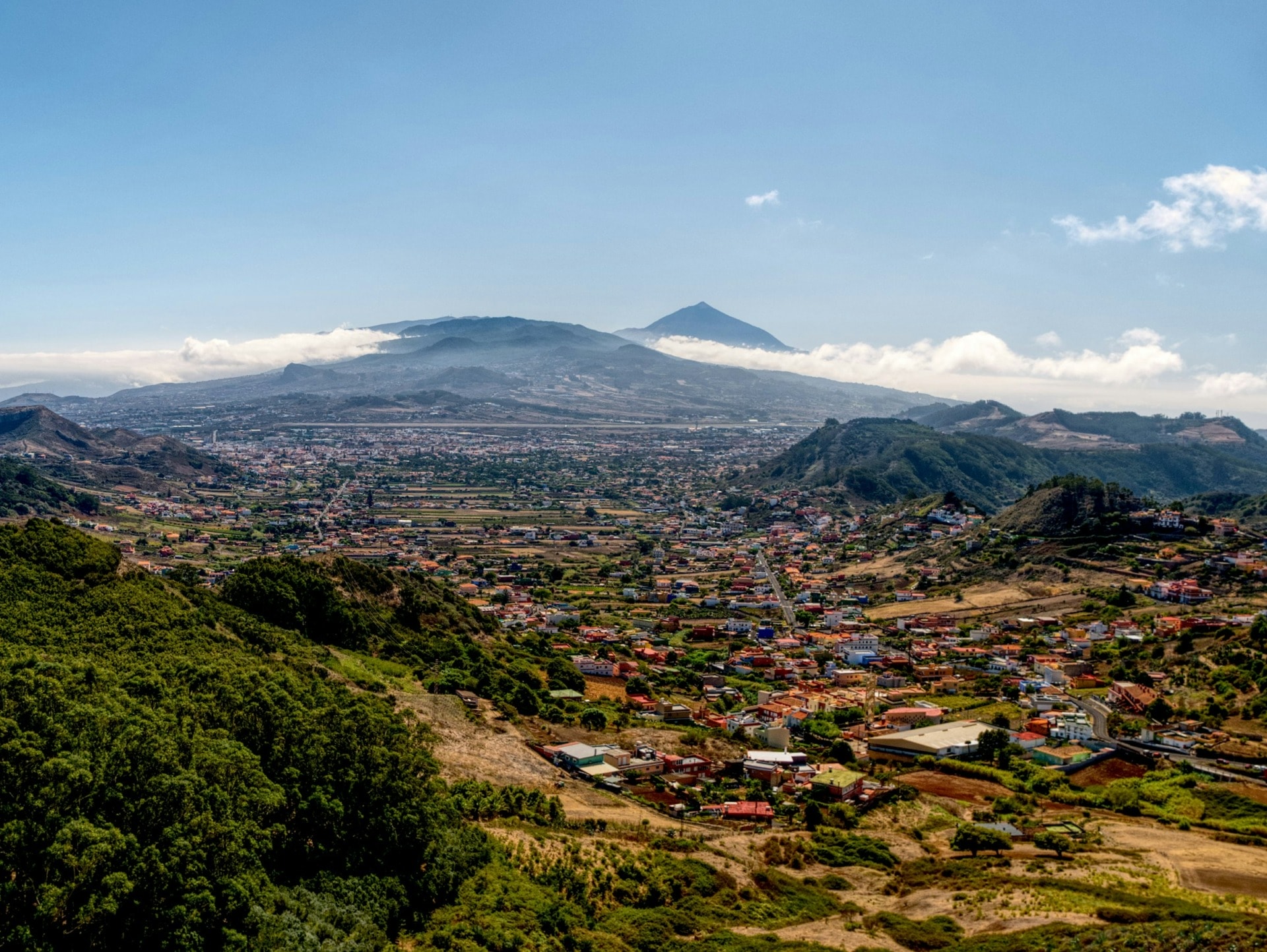By 2050, the World Bank predicts 143 million will be displaced in Africa, Asia & Latin America due to climate change. As this plays out, human trafficking cases will skyrocket.
Climate Change’s Role in Modern Slavery
Climate change is not just about rising temperatures. It is about livelihoods disrupted, communities displaced, and vulnerabilities heightened.
When people are forced to migrate due to climate change impacts, they face greater risks of human trafficking and forced labour. These individuals, who have lost their livelihoods and ties to their communities, are vulnerable to exploitation and, in the worst cases, modern slavery.
Recent Links Between Climate Change and Modern Slavery
Recent months have seen several countries grappling with complex and expected climate changes, leaving many countries grappling with the complex intersection of climate change and modern slavery.
Somalia
In Somalia, a country highly vulnerable to climate change, the effects of the worst drought in four decades have been devastating. These recurring droughts have disrupted traditional nomadic lifestyles, rendering pastoralists more susceptible to exploitation, forced labour, and human trafficking.
The climate crisis has intensified the suffering of the Somali people, making them even more vulnerable to modern slavery.
The evil cycle – the Somali curse – Somalia between droughts and floods. When there is drought, the drums are beaten hard for donors to hear. When theirs rain and floods, we fold our arms and wait for the next drought and yet another emergency appeal #RainWaterHarvesting pic.twitter.com/EFmxqurbyy
— Kassim Gabowduale (@gabowduale) March 24, 2023
In July 2023, a major visa scam was uncovered in Mogadishu involving the Toronto Tours and Travel Agency. The fraud involved issuing fake visas for Canada, Europe, and Qatar, resulting in at least 240 victims who paid between $4,000 to $12,000 for promised tourist and work visas.
To make matters worse, suspicions were raised about the involvement of some government officials in the visa scam. These concerns stemmed from a previous incident in which 120 adolescent girls with Somali passports were transported to Saudi Arabia to work as domestic helpers.
What was particularly alarming was that Somalian Prime Minister Hamse Abdi Barre and his cabinet members were aboard the same flight. While the connections between the government officials and the trafficked individuals remain uncertain, the government has released no official statement regarding the matter.
India
India consistently reports the highest number of human trafficking cases globally, and climate change further exacerbates the situation.
Despite passing the Bonded Labour Abolition Act 1976, India is home to over 11 million slaves. According to the 2023 Global Slavery Index, this is the highest number in any country.
The inclusion of India in the G20 sparked optimism for tackling global challenges. However, the efforts towards combatting modern slavery appear uninspiring.
A recent report by Rights Lab in collaboration with CAFOD and Caritas India revealed a concerning connection between climate change, migration, and human trafficking.
Over 88% of households in Bangladesh and 61% in India reported that climate change had adversely affected their livelihoods. Over a third of these households had also resorted to migration in the past five years.
The report also revealed cases of recruitment payments and debt bondage, two indicators of modern slavery.
Cuba
Unfortunately, Cuba has become another country affected by climate change and modern slavery.
Like Somalia, Cuba has experienced the negative consequences of climate change. These include longer droughts, warmer waters, and longer and wetter rainy seasons. Consequently, many individuals seeking better financial stability have turned to other countries for opportunities, including Russia.
However, this has come with its own set of problems.
Recently, the Cuban foreign ministry discovered a human-trafficking network operating from Russia. This network allegedly recruits Cubans to fight in Moscow’s war in Ukraine.
Reports suggest that Cubans in Russia have been trafficked and incorporated into the military forces involved in the conflict.
Russia has already been accused of offering foreign fighters over $2000 per month to fight in Ukraine. This is significant money in Cuba, where the average monthly salary is only $18.
The Truth is in the Details – Interview with Ben Emmerson | Unpicking Modern Slavery From Fashion Supply Chains
Human Trafficking Legislation in High-Income Countries
In the UK, under the Modern Slavery Act(2015)companies must report on their efforts to eradicate modern slavery from their operations. However, the “Illegal Migration Act” has created challenges for the country’s slavery protection system.
By not requiring authorities to identify victims of modern slavery before their return to their home country, it could have detrimental effects. Such a change would encourage human traffickers to take advantage of the vulnerable and boost their “businesses.”
The Illegal Migration Act has passed into law.
It will make it impossible for the vast majority of people fleeing violence and persecution to claim asylum in the UK. pic.twitter.com/lF1OqJ7RAT
— British Red Cross Policy (@RedCrossPolicy) September 11, 2023
Similarly, the United States is dealing with its challenges regarding migration and modern slavery. Although the Trafficking Victims Protection Act criminalises human trafficking, an estimated 1,091,000 individuals live in modern slavery in the country.
While the rate of modern slavery in the United States is one of the lowest in the Americas, the country has the highest number of individuals living in modern slavery in the region. This susceptibility to modern slavery is largely due to discrimination against migrants, particularly those who cross the Mexico-U.S. border.
Initiatives Having a Positive Impact
Amid these challenges and complexities, several initiatives deserve a spotlight for positively impacting vulnerable communities.
The Global Fund to End Modern Slavery is a global organisation that aims to improve anti-slavery efforts worldwide. To tackle the climate challenges faced by countries in East Africa, GFEMS has launched a new portfolio of investments. Currently, the fund supports nine projects and seven partners in East Africa, including Awareness Against Human Trafficking (HAART) in Kenya.
Another initiative that deserves recognition is one of the oldest international human rights organizations, Anti-Slavery International.
“Many victims of the climate emergency are exploited by businesses that contribute to the problem. Many of the people forced into migration by the climate emergency find themselves trafficked into forced labour, some within the very industries that are degrading the environment – completing a vicious circle in which climate change drives, and is driven by, modern slavery”, Anti Slavery International Statement.
The organization has been a strong advocate for human rights for several decades, actively addressing the root causes of slavery. Recognizing the connection between climate change and modern slavery, they are urging governments and international bodies to act now, not later.
Charting a Sustainable Path Forward
As we approach COP28, climate negotiators must consider the plight of those affected by climate change, migration, and modern slavery.
As stressed by the anti-slavery initiatives, it is only when we consider the disproportionate effects of climate change that we can begin to envision a less bleak future.
With matters only becoming increasingly worse, this is not the time for inaction.
Editor’s Note: The opinions expressed here by the authors are their own, not those of Impakter.com — In the Featured Photo: Family Crossing Bridge to Access Resources. Featured Photo Credit: Anti-Slavery International


